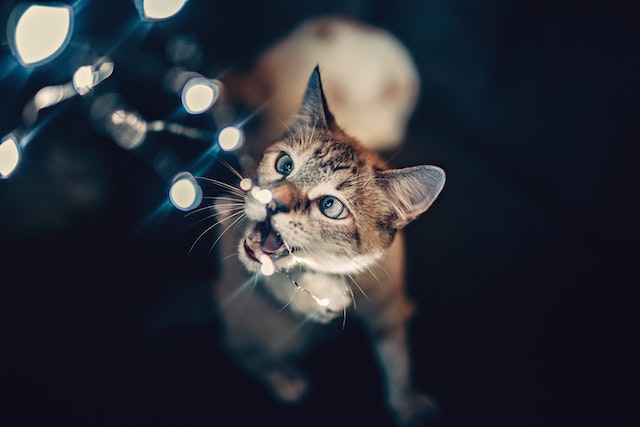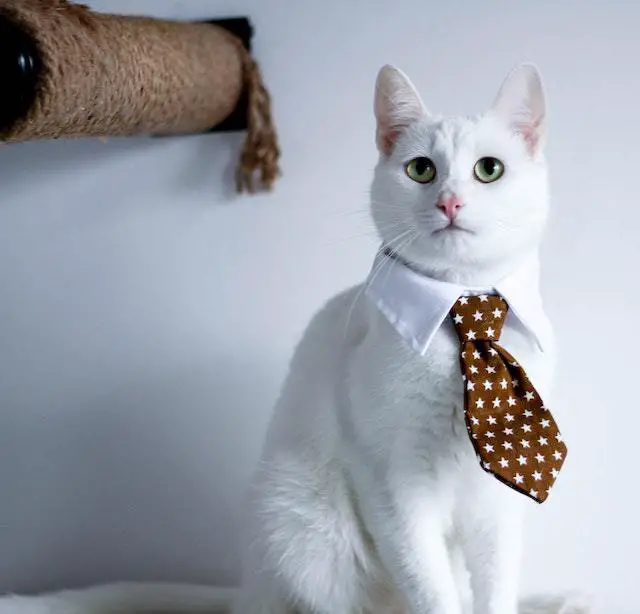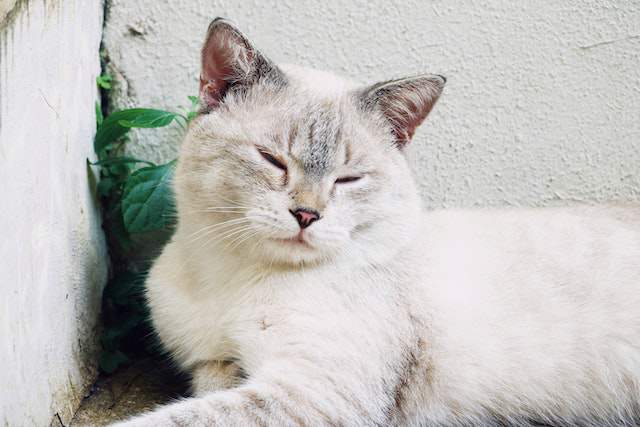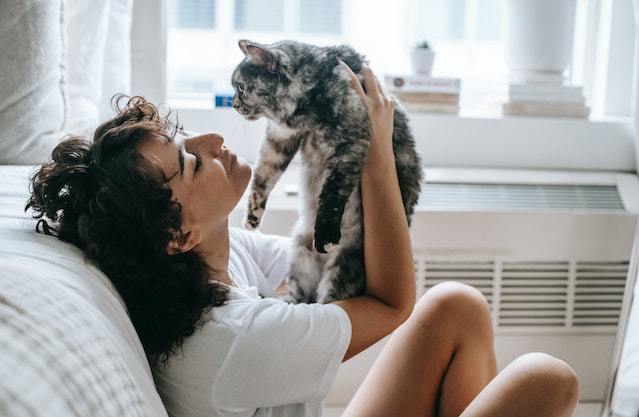21 Top Things Cats Hate You Should Avoid

We all know that our furry feline friends can be a bit finicky, so in today’s post, we’re going to dive into the intriguing world of things that cats despise.
Let’s get started…
Top Things Cats Hate
Cats hate water, as they generally dislike getting wet. They also dislike loud noises, such as vacuum cleaners or fireworks. Additionally, cats often dislike being restrained or confined, as they value their independence and freedom to roam.
Let’s dive deeper…
The following are some common things cats hate you should know:
1. Strong Scents
Strong scents are often disliked by cats due to their sensitive sense of smell. Cats have a highly developed olfactory system, and overpowering scents can overwhelm and irritate them.
Additionally, strong scents can disrupt a cat’s ability to detect subtle odors, which is crucial for their hunting instincts.
Certain scents, such as citrus, mint, and certain essential oils, are known to repel cats due to their strong and unfamiliar nature. Cats may also associate strong scents with potential dangers or threats, leading to their aversion.
2. Loud Noises
Cats have a natural sensitivity to loud noises, which often leads to their dislike of such sounds. The feline auditory system is designed to pick up even the faintest of sounds, making loud noises overwhelming and disruptive to their sensitive hearing.
The sudden and unpredictable nature of loud noises can startle and frighten cats, triggering their instinctual fight-or-flight response. Additionally, the loudness of certain noises may cause discomfort or even physical pain to cats, leading to their aversion towards them.
Ultimately, cats’ dislike of loud noises is rooted in their evolutionary adaptations and their innate need for a quiet and calm environment.
Here are some loud noises that cats hate:
- Vacuum cleaner
- Thunder and lightning
- Motorbikes
- Drills
- Balloons popping
- Gunshots
- Fireworks
- Loud Music
3. Dirty Litter Boxes
Dirty litter boxes are a source of discomfort and displeasure for cats. Cats have a highly developed sense of smell, and a dirty litter box emits strong odors that can be overwhelming for them.
Cats are naturally clean animals, and they prefer a pristine and odor-free environment for eliminating waste. A dirty litter box can also lead to urinary tract infections and other health issues for cats.
Moreover, cats are creatures of habit, and a dirty litter box can disrupt their routine and cause stress and anxiety.
4. Strangers
Cats are known for their independent nature and their strong territorial instincts. As such, they often feel threatened by unfamiliar individuals or animals entering their territory.
Strangers, whether humans or other animals, disrupt the cats’ sense of security and control over their environment. The presence of strangers can trigger stress and anxiety in cats, leading to defensive behavior such as hissing, growling, or even aggression.
Cats prefer familiarity and predictability, and the presence of strangers can disrupt their sense of comfort and stability, causing them to dislike and avoid such encounters.
5. Costumes

Cats generally dislike wearing costumes due to several reasons. Firstly, cats are known for their independent nature, and wearing a costume can restrict their freedom of movement, causing discomfort and frustration.
Secondly, cats have highly sensitive and delicate fur that can be easily irritated by the materials and fasteners used in costumes.
Thirdly, cats rely heavily on their sense of touch, and wearing a costume can disrupt their tactile awareness, leading to anxiety and stress.
Lastly, cats are instinctually cautious creatures and the unfamiliarity of a costume can trigger their natural instinct to escape or hide, making them feel vulnerable and threatened.
6. Closed Doors
Closed doors can be an annoyance for cats due to their curious nature and desire for exploration. Cats are naturally curious creatures who crave stimulation and access to their surroundings.
Closed doors limit their freedom and prevent them from satisfying their inquisitive instincts. Additionally, closed doors can create a sense of confinement, making cats feel trapped or isolated, which goes against their independent nature.
The inability to access closed-off areas may also lead to frustration and a feeling of being excluded, which can contribute to their dislike of closed doors.
7. Car Rides
Cats often dislike car rides due to a combination of factors. Firstly, cats are creatures of habit and prefer familiar environments.
Being confined in a moving vehicle can be stressful and disrupt their sense of security. Additionally, the motion and vibrations of the car can cause motion sickness in cats, leading to discomfort and anxiety.
The unfamiliar noises and scents in a car can also be overwhelming for cats, triggering their instinctual need for control and territory. Lastly, the lack of control over the situation can make cats feel vulnerable and anxious, contributing to their dislike of car rides.
8. Bathing
Bathing is often considered one of the things that cats hate due to their inherent dislike for water. Cats are known for their fastidious grooming habits, which involve licking themselves clean using their tongues.
Their fur acts as a natural insulator, and getting wet can disturb this balance. Additionally, cats have a higher body temperature than humans, so being submerged in water can be uncomfortable for them.
The sensation of being wet and the unfamiliarity of the bathing process can also cause stress and anxiety in cats, further contributing to their aversion to bathing.
9. Too Much Attention
Cats are known for their independent and aloof nature, which is why too much attention can be overwhelming for them. Cats value their personal space and prefer to approach humans on their own terms.
When they are constantly bombarded with attention, it can make them feel trapped and anxious. Cats may also view excessive attention as a threat to their control and autonomy, causing them to become defensive or aggressive.
Therefore, it is important to respect a cat’s boundaries and allow them to initiate interaction when they are ready.
10. Being Ignored

Being ignored is one of the things cats hate because it goes against their natural instincts and desire for attention. Cats are independent animals, but they still crave interaction and socialization.
When they are ignored, they may feel neglected and unimportant, leading to feelings of frustration and even stress. Additionally, cats are known for their curiosity and love exploring their surroundings, so being ignored deprives them of the mental stimulation they need.
Ultimately, cats hate being ignored because it goes against their social and curious nature, leaving them feeling isolated and unfulfilled.
Learn more about things cats like.
11. Balloons
Balloons can be one of the things that cats hate due to several reasons. First, the sound of balloons popping can startle cats, triggering their natural instinct to flee or hide.
Second, the movement of balloons can be unpredictable and erratic, which can make cats feel uneasy and anxious.
Third, the shiny surface of balloons can reflect light in a way that confuses and disorients cats, making them feel uncomfortable.
Lastly, the static electricity generated by rubbing balloons can cause cats to experience mild shocks, leading to aversion and dislike.
12. Changes in Routine
Cats are creatures of habit, and any changes in their routine can be unsettling for them. They thrive on predictability and familiarity, so any disruptions can cause stress and anxiety.
Cats hate changes in routine because it disrupts their sense of control and security. Alterations in feeding times, litter box placement, or even furniture rearrangements can make them feel disoriented and uneasy.
Cats prefer consistency and stability in their daily lives, and any unexpected changes can be perceived as a threat to their overall well-being.
13. Being Confined
Being confined is one of the things cats hate due to their innate need for freedom and independence. Cats are natural explorers and being confined restricts their ability to roam and engage with their environment.
It limits their opportunities to hunt, play, and exercise, which are essential for their physical and mental well-being. Additionally, confinement can lead to boredom, frustration, and stress, causing behavioral issues such as excessive meowing, scratching, or even aggression.
Cats thrive in an environment that allows them to express their natural instincts and being confined goes against their inherent nature.
14. Forced Interaction
Forced interaction is one of the things that cats generally dislike. Cats are independent creatures that value their personal space and autonomy.
When they are forced to interact, such as being picked up or held against their will, it goes against their natural instincts and can cause stress and anxiety. Cats prefer to initiate social interactions on their own terms, allowing them to feel in control and comfortable in their environment.
Respecting a cat’s boundaries and allowing them to approach for attention when they are ready can help foster a positive and trusting relationship with these enigmatic feline companions.
15. Being Held and Cuddled Too Much

Being held and cuddled too much is one of the things cats often dislike due to their independent nature. Cats are natural predators and have a strong sense of personal space.
Being constantly held can make them feel restricted and anxious, as it goes against their instinct to have freedom of movement. Additionally, cats have different comfort levels with physical contact, and forcing excessive cuddling can lead to stress and discomfort.
Respecting a cat’s boundaries and allowing them to initiate affectionate interactions can help create a more harmonious bond.
16. Total Darkness
Total darkness is one of the things cats hate due to their natural instinct as nocturnal creatures. Cats have highly developed night vision, allowing them to navigate and hunt in low-light conditions.
Darkness deprives them of their primary sensory advantage, making them feel vulnerable and disoriented. Additionally, cats rely on their acute hearing and whiskers to navigate in the dark, and complete darkness impairs these abilities.
The absence of visual stimulation in total darkness can also lead to boredom and frustration for cats, who are naturally curious and inquisitive animals.
17. Too Much Tummy Rubs
Cats generally dislike receiving too many tummy rubs. While some cats may enjoy an occasional gentle belly rub, most cats find it uncomfortable or even distressing.
Cats have sensitive bellies, and excessive rubbing can trigger a defensive response, as their vulnerable area is being touched. Additionally, cats are instinctively protective of their vital organs and prefer to have control over their bodies.
Lastly, cats have a natural instinct to be cautious and reserved, and having their bellies exposed can make them feel vulnerable and anxious.
18. Being Left Alone For Too Long
Being left alone for too long is something that cats generally dislike. Cats are social animals and thrive on companionship, whether it be from their human owners or other feline friends.
When left alone for extended periods, cats may feel lonely and bored, leading to feelings of anxiety and stress. Additionally, cats are territorial creatures and may become anxious when they are unable to monitor their surroundings or defend their territory.
Overall, the absence of social interaction and mental stimulation can contribute to a cat’s dislike of being left alone for too long.
19. Medicine

Medicine is often despised by cats due to its taste and smell. The strong odor and bitter flavor of most medications can be overwhelming for their sensitive senses.
Cats have a highly developed sense of taste and smell, making them more sensitive to the unpleasantness of medicine.
Additionally, cats may associate the act of taking medicine with negative experiences, such as being restrained or receiving medical treatments they dislike, leading to an aversion towards medication. Their independent nature and dislike of being controlled can also contribute to their resistance to taking medicine.
20. Spoiled food
Spoiled food is one of the things that cats hate due to its unpleasant smell and taste. Cats have a highly developed sense of smell, and they can detect even the slightest change in their food.
Spoiled food emits a strong odor that is unappetizing to cats. Additionally, spoiled food may contain harmful bacteria or toxins, which can lead to digestive issues or even food poisoning in cats.
As instinctual hunters, cats are naturally drawn to fresh and prey-like food, making spoiled food unappealing to their carnivorous nature.
21. Low temperatures and High Temperatures
Low temperatures and high temperatures are two extreme weather conditions that cats generally dislike. Cats are naturally adapted to moderate temperatures, and extreme cold or heat can be uncomfortable for them.
In low temperatures, cats may find it difficult to regulate their body temperature, leading to discomfort and even hypothermia.
On the other hand, high temperatures can cause cats to overheat, leading to dehydration, heat exhaustion, and even heatstroke. Cats have a preference for moderate temperatures, and extreme weather conditions can be physically and mentally stressful for them.
Conclusion
In conclusion, cats have their unique preferences and dislikes. From water to certain scents, they can be quite particular about what they enjoy. Understanding these dislikes can help us create a more harmonious environment for our feline friends.
So, next time you see your cat giving you the “stink eye” or running away from the vacuum cleaner, remember to respect their boundaries and embrace their quirks. After all, a happy cat makes for a happy home!
